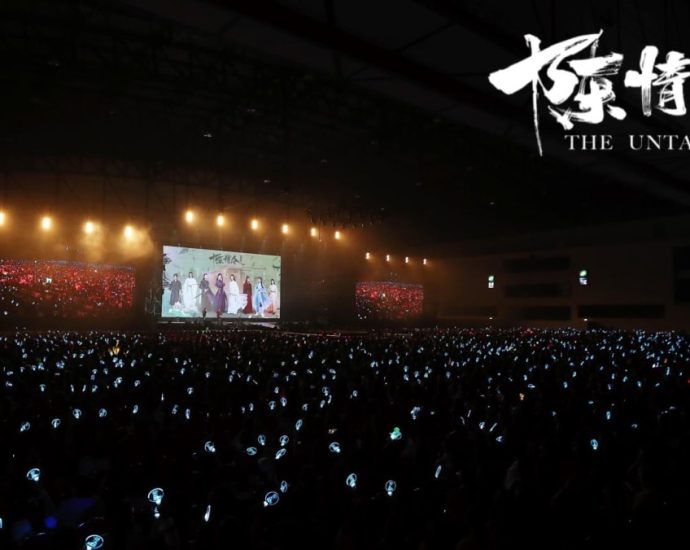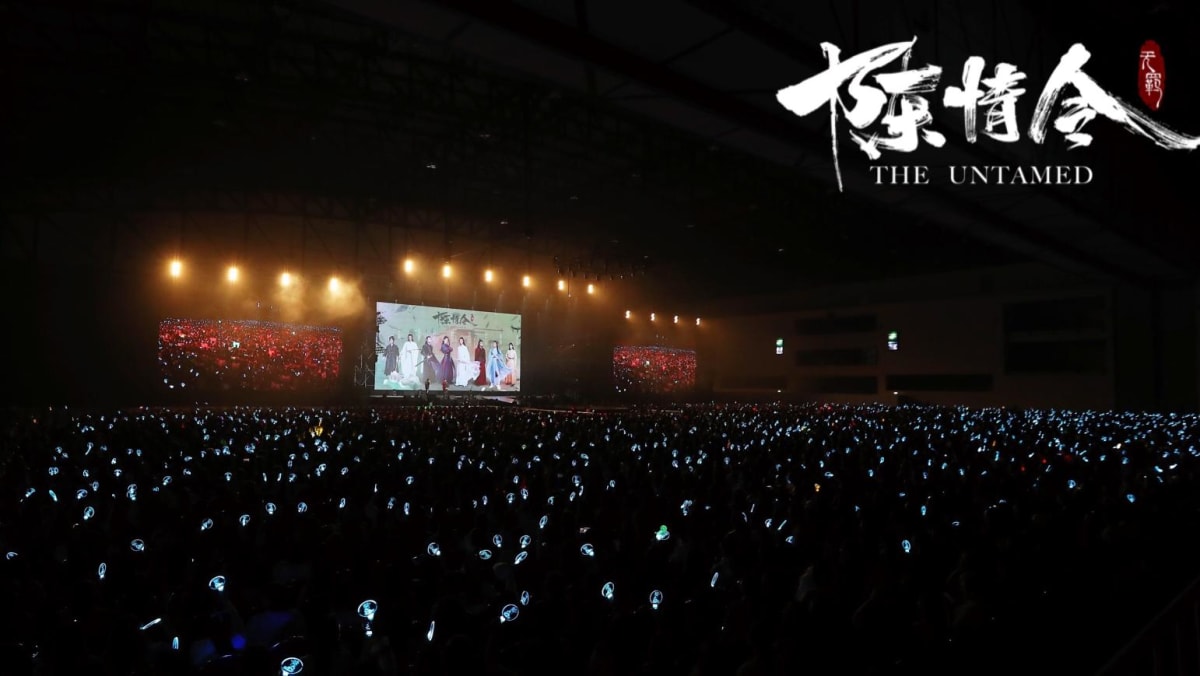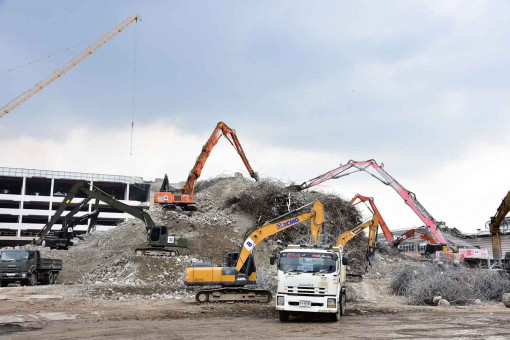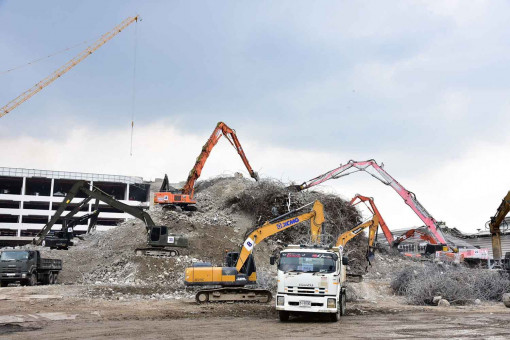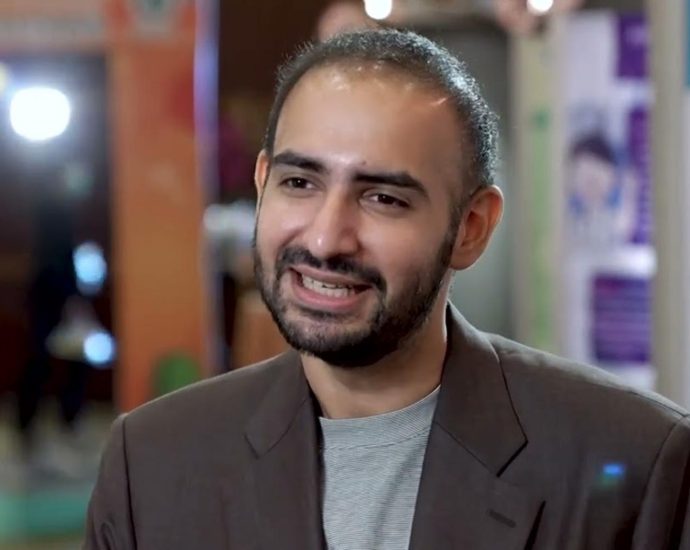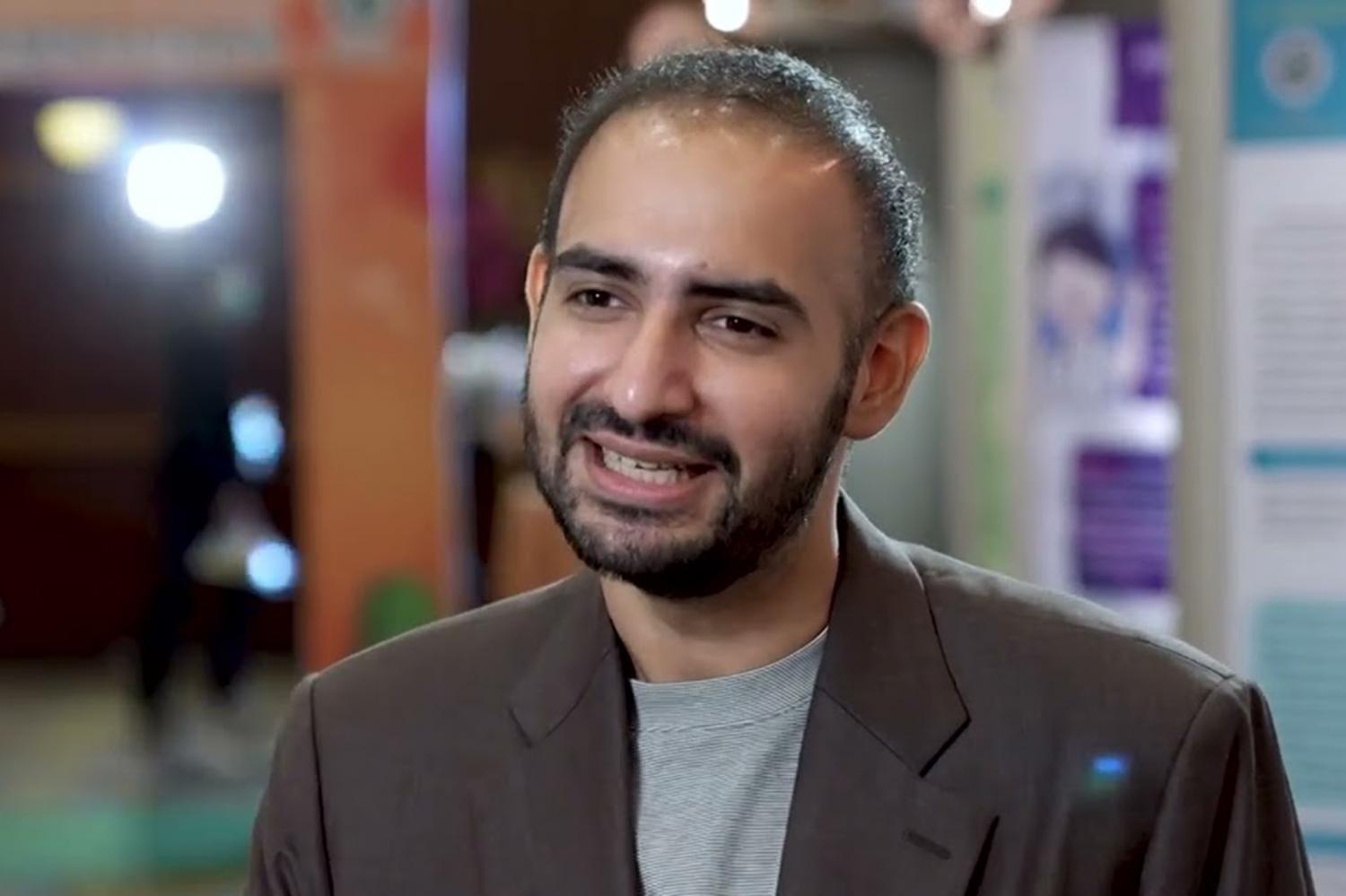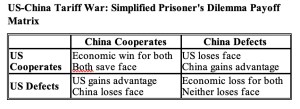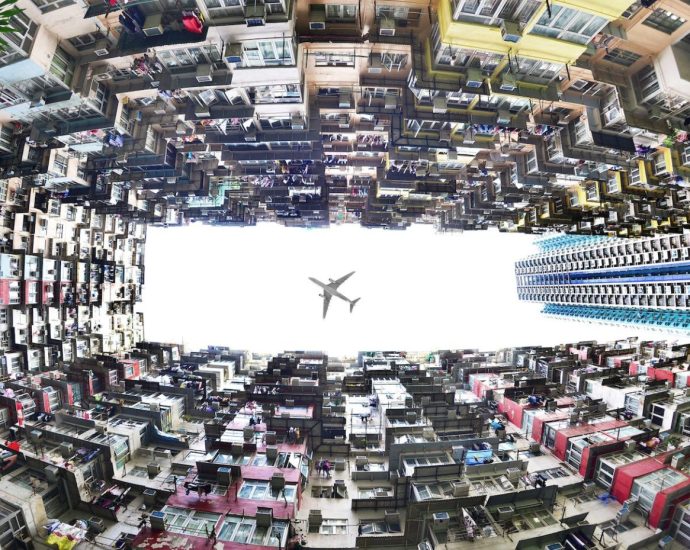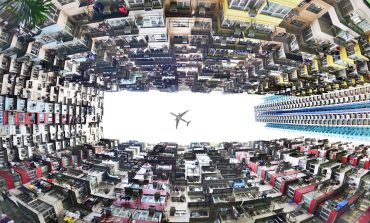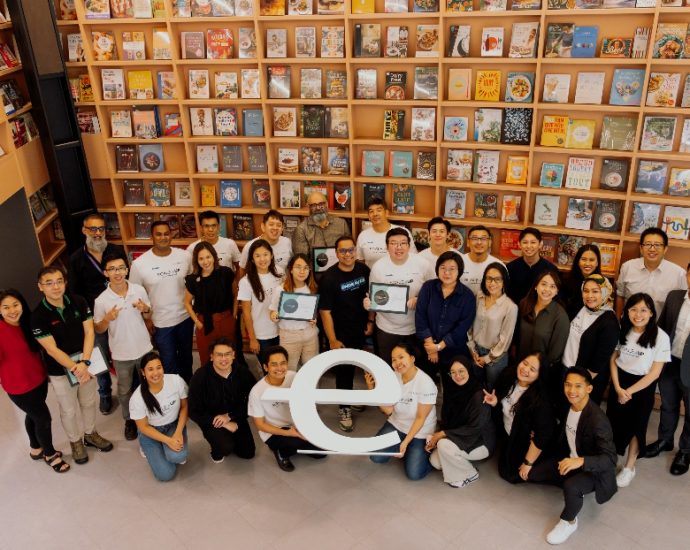Why China curbing rare earth exports is a huge blow to the US
BBC News
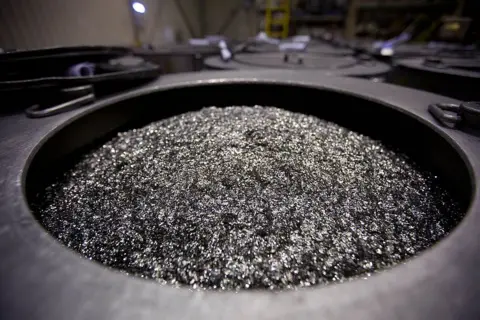 Getty Images
Getty ImagesAs the trade war between China and the US escalates, attention has been focused on the increasingly high levels of tit-for-tat tariffs the two countries are imposing on one another.
But slapping reciprocal tariffs on Washington is not the only way Beijing has been able to retaliate.
China has now also imposed export controls on a range of critical rare earth minerals and magnets, dealing a major blow to the US.
The move has laid bare how reliant America is on these minerals.
This week, Trump ordered the commerce department to come up with ways to boost US production of critical minerals and cut reliance on imports – an attempt by Washington to reclaim this critical industry. But why exactly are rare earths so important and how could they shake up the trade war?
What are rare earths and what are they used for?
“Rare earths” are a group of 17 chemically similar elements that are crucial to the manufacture of many high-tech products.
Most are abundant in nature, but they are known as “rare” because it is very unusual to find them in a pure form, and they are very hazardous to extract.
Although you may not be familiar with the names of these rare earths – like Neodymium, Yttrium and Europium – you will be very familiar with the products that they are used in.
For instance, Neodymium is used to make the powerful magnets used in loudspeakers, computer hard drives, EV motors and jet engines that enable them to be smaller and more efficient.
Yttrium and Europium are used to manufacture television and computer screens because of the way they display colours.
“Everything you can switch on or off likely runs on rare earths,” explains Thomas Kruemmer, Director of Ginger International Trade and Investment.
Rare earths are also critical to the production of medical technology like laser surgery and MRI scans, as well as key defence technologies.
What does China control?
China has a near monopoly on extracting rare earths as well as on refining them – which is the process of separating them from other minerals.
The International Energy Agency (IEA) estimates that China accounts for about 61% of rare earth production and 92% of their processing.
That means it currently dominates the rare earths supply chain and has the capacity to decide which companies can and cannot receive supplies of rare earths.
Both the extraction and processing of these rare earths are costly and polluting.
All rare earth resources also contain radioactive elements, which is why many other countries, including those in the EU, are reluctant to produce them.
“Radioactive waste from production absolutely requires safe, compliant, permanent disposal. Currently all disposal facilities in EU are temporary,” says Mr Kruemmer.
But China’s dominance in the rare earth supply chain didn’t take place overnight – but rather, is the result of decades of strategic government policies and investment.
In a visit to Inner Mongolia in 1992, the late Chinese leader Deng Xiaoping, who oversaw China’s economic reform, famously said: “The Middle East has oil and China has rare earths”.
“Beginning in the late 20th century, China prioritised the development of its rare earth mining and processing capabilities, often at lower environmental standards and labour costs compared to other nations,” said Gavin Harper, a critical materials research fellow at the University of Birmingham.
“This allowed them to undercut global competitors and build a near-monopoly across the entire value chain, from mining and refining to the manufacturing of finished products like magnets.”
How has China restricted exports of these minerals?
In response to tariffs imposed by Washington, China earlier this month began ordering restrictions on the exports of seven rare earth minerals – most of which are known as “heavy” rare earths, which are crucial to the defence sector.
These are less common and are harder to process than “light” rare earths, which also makes them more valuable.
From 4 April, all companies now have to get special export licenses in order to send rare earths and magnets out of the country.
That is because as a signatory to the international treaty on the Non-Proliferation of Nuclear Weapons, China has the ability to control the trade of “dual use products”.
According to the Centre for Strategic and International Studies (CSIS), this leaves the US particularly vulnerable as there is no capacity outside China to process heavy rare earths.
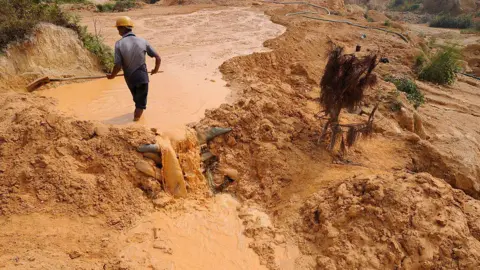 Getty Images
Getty ImagesHow could this impact the US?
A US Geological report notes that between 2020 and 2023, the US relied on China for 70% of its imports of all rare earth compounds and metals.
This means that the new restrictions have the ability to hit the US hard.
Heavy rare earths are used in many military fields such as missiles, radar, and permanent magnets.
A CSIS report notes that defence technologies including F-35 jets, Tomahawk missiles and Predator unmanned aerial vehicles all depend on these minerals.
It adds that this comes as China “expands its munitions production and acquires advanced weapons systems and equipment at a pace five to six times faster than the United States”.
“The impact on the US defence industry will be substantial,” said Mr Kroemmer.
And it’s not only in the field of defence.
US manufacturing, which Trump has said he hopes to revive through the imposition of his tariffs, stand to be severely impacted.
“Manufacturers, particularly in defence and high-tech, face potential shortages and production delays due to halted shipments and limited inventories,” said Dr Harper.
“Prices for critical rare earth materials are expected to surge, increasing the immediate costs of components used in a wide range of products, from smartphones to military hardware,” he says, adding that this could result in potential production slowdowns for affected US companies.
If such a shortage from China persists in the long-run, the US could potentially begin diversifying its supply chains and scaling up its domestic and processing capabilities, though this would still require “substantial and sustained investment, technological advancements and potentially higher overall costs compared to the previous dependence on China”.
And it’s clear this is something already on Trump’s mind. This week, he ordered an investigation into the national security risks posed by the US’ reliance on such critical minerals.
“President Trump recognises that an overreliance on foreign critical minerals and their derivative products could jeopardise US defence capabilities, infrastructure development, and technological innovation,” said the order.
“Critical minerals, including rare earth elements, are essential for national security and economic resilience.”
Can’t the US produce its own rare earths?
The US has one operational rare earths mine, but it does not have the capacity to separate heavy rare earths and has to send its ore to China for processing.
There used to be US companies that manufactured rare earth magnets – until the 1980s, the US was in fact the largest producer of rare earths.
But these companies exited the market as China began to dominate in terms of scale and cost.
This is largely believed to be part of why US president Donald Trump is so keen to sign a minerals deal with Ukraine – it wants to reduce dependency on China.
Another place Trump has had his eye on is Greenland – which is endowed with the eighth largest reserves of rare earth elements.
Trump has repeatedly showed interest in taking control of the autonomous Danish dependent territory and has refused to rule out economic or military force to take control of it.
These might have been places that the US could have sourced some of its rare earth exports from, but the adversarial tone Trump has struck with them means the US could be left with very few alternative suppliers.
“The challenge the U.S. faces is two-fold, on the one hand it has alienated China who provides the monopoly supply of rare earths, and on the other hand it is also antagonising many nations that have previously been friendly collaborators through tariffs and other hostile actions,” said Dr Harper.
“Whether they will still prioritise collaboration with America remains to be seen in the turbulent policy environment of this new administration.”



